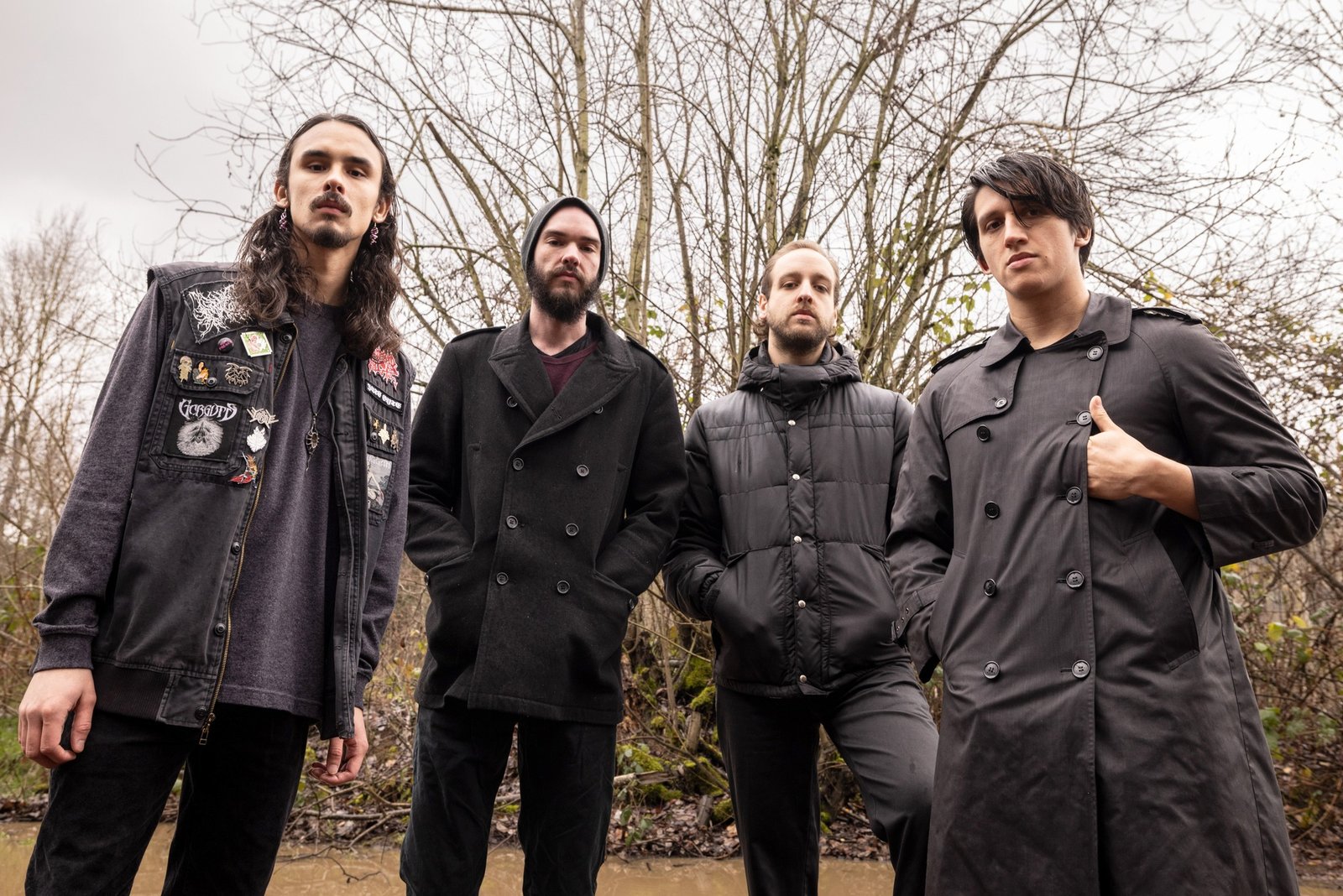In an era where the lines between genres are increasingly blurred, Aseitas stands out as a band that’s not just pushing boundaries but obliterating them, all while establishing a consistent ethos of dissonance and sonic distress. Hailing from Portland, Oregon, the quartet has quickly won our writers’ hearts, blending progressive death metal with classical and avant-garde elements to create a sound as complex as it is crushing. Their unique approach to music, as evidenced in this year’s Eden Trough, where they blend mathy dissodeath with compelling post-rock and classical passages, intrigued and captivated me. They might have the same effect on you, so I’m pleased to introduce Aseitas as our new Weekly Featured Artist.
Aseitas exploded onto the scene with their self-titled and self-released debut album in 2018. From their first tracks, be it the towering, sludgy post-metal of “Morning Star”, the noisy-to-serene “The Orchard”, or the ever-shifting thrashy grooves of “House of Sloth”, Aseitas established early on an ability to unite a wide array of influences and subgenres in the service of something devastatingly heavy. The band’s debut set itself apart by using fretless guitar, sitar, and piano alongside more typical death metal instrumentation. The album’s dense and intricate compositions showcased a band unafraid to explore extreme music’s darkest and most chaotic corners, establishing a penchant for diverse yet disturbing clean and heavy passages that continues with each subsequent record. Over the course of their following releases, Aseitas has continued to evolve, pushing its sound into new territories while refining its approach and improving each album’s production quality.
This ability to move seamlessly between disparate influences seems tied to the multi-instrumental capabilities of the four members of Aseitas. While Nathan Nielsen performs most of the band’s crushing vocals, Gage Dean and Travis Forencich contribute as well, and all three have played various string instruments across their discography. Forencich furthers the rich textures of the band’s sonic fabric by weaving in synths, piano, and fretless guitar throughout their albums. Zack Rodrigues brings dizzying drum and percussion contributions to each record and brings guitar and piano to 2020’s False Peace.
This sophomore record is a testament to Aseitas‘ growth and ambition. When we reviewed False Peace in 2020, Robert praised its bravery and ability to careen from mathcore to harsh noise to progressive death metal while highlighting its possible Album of the Year Status. A song like “Scalded” grinds and halts with controlled chaos, “Impermanence” mathematically shifts and screams not unlike Meshuggah, and the title track explores noise and industrial influences with some almost imperceptibly low-tuned guitars. The double-record demonstrates the band’s ability to balance brutality with moments of eerie calm, creating a suffocating yet hypnotic atmosphere.
Four years later, Aseitas followed up this hulking, 72-minute double album with 2024’s Eden Trough, which we also loved. Even at only a fraction of its predecessor’s length, the first outing on Total Dissonance Worship still managed to plow new and fertile ground for the quartet. Some of my favourite moments eschew distortion while continuing the band’s focus on dissonance and discomfort – the closing piano and cello duet of “Null Adam/Null Eve” or the clean guitar break on the epic “Tiamat” being just such haunting examples. But the heavy moments twist and turn ever more effectively, with an articulate mix that captures every dissonant and angular detail of the album’s five tracks and 29 minutes. “Alabaster Bones” takes rhythmically complex grooves and layers them with atonal guitar leads, harkening to the angular approach of Car Bomb owhile capturing the bleakness of blackened acts like Dodecahedron. The group began composing this release in 2019, individually recording demos before learning from and refining them together. The precise attention to every crushing detail is evidenced in the time taken to create this record, and it has earned a wide array of critical accolades, including from Stereogum.
The release of Eden Trough was celebrated with a live performance. As for what’s next for Aseitas, it’s hard to predict, but with a discography as consistently impressive as theirs, the future looks promising. You can purchase their music on Bandcamp, and follow Aseitas on Facebook or Instagram to stay updated on their latest ventures.
Aseitas is:
Nathan Nielson – Lead vocals
Gage Dean – Guitar, Bass, Vocals
Travis Forencich – Guitar (electric, acoustic, fretless), Piano, Synth, Field recordings, Bass, Vocals
Zack Rodrigues – Drums, Percussion







Trench/Altar was my first listen from Aseitas and even to this day its one of my favourite tracks. Heavy, nihilistic, heavenly at parts, endless pit mostly.. It’s a real peek into a psyche that knows the abyss.